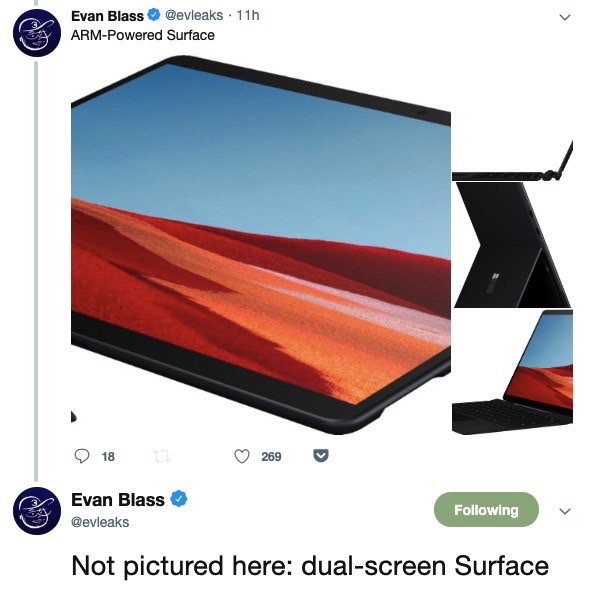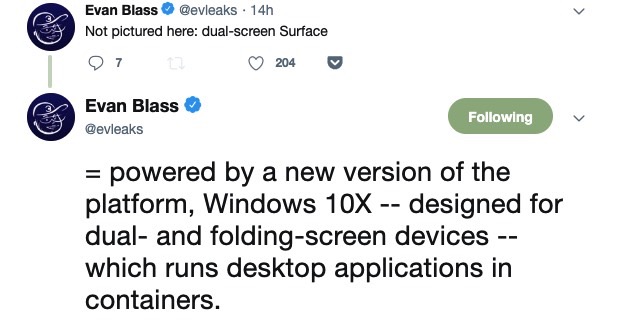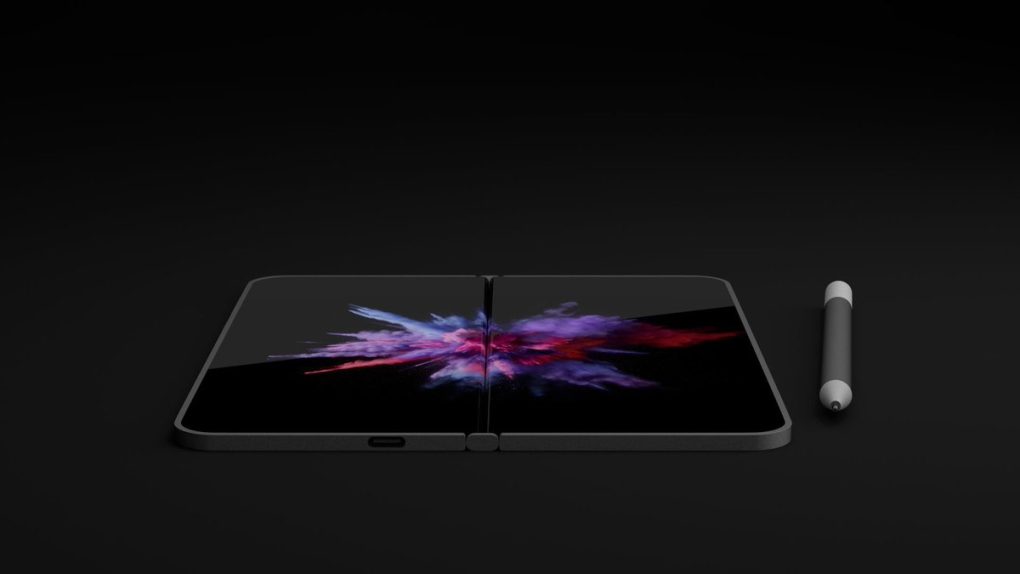Microsoft has been developing a Windows device featuring two displays for quite some time, with reports saying earlier this summer that the gadget, code-named Centaurus, was shown to Microsoft employees during an all-hands internal meeting. We then learned the dual-screen device might launch in the second half of 2020, complete with support for Android apps as well as iCloud support.
More recently, we saw a brand new technology that Microsoft is testing for foldable and dual-screen devices — a liquid hinge tech that could be sold to other companies for their own foldable creations. All of that brings us to Microsoft’s Surface event on Wednesday, where Microsoft might unveil the Centaurus.
Following a massive leak that featured a collection of press renders for no less than four distinct 2019 Surface models, including the ARM Surface Pro, the 13-inch and 15-inch Surface Laptop 3, and the Surface Pro 7, well-known leaker Evan Blass posted the following comment on Twitter:

“Not pictured here: dual-screen Surface,” he said, and the implication seems to be that Microsoft will indeed unveil the device during its October 2nd press conference. Blass didn’t release any imagery for the device, nor did he make other references to it. Blass followed up with a tweet that revealed the name of the operating system that will power dual-screen and foldable Windows devices. It’s called Windows 10X, and it runs desktop applications in containers:

Samsung’s first-gen foldable smartphone proved how important it is to get the hardware right the first time around. Microsoft might not be launching a foldable Surface just yet, but it will probably begin selling the dual-screen Surface only once the device is ready for mass consumption. In addition to the hardware, Microsoft also had to adapt Windows 10 to run on such devices. But with the Windows 10X name leaked, it sure looks like Microsoft might be ready to tell the world more details about its first dual-screen laptop.
Aside from Microsoft, other Windows vendors might be developing similar devices, with Intel being a huge advocate for such designs. Lenovo, meanwhile, already demoed a concept featuring a foldable display.








